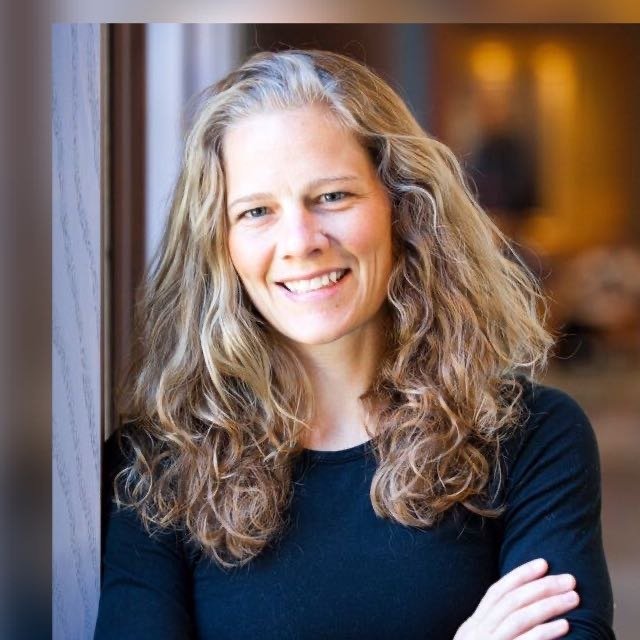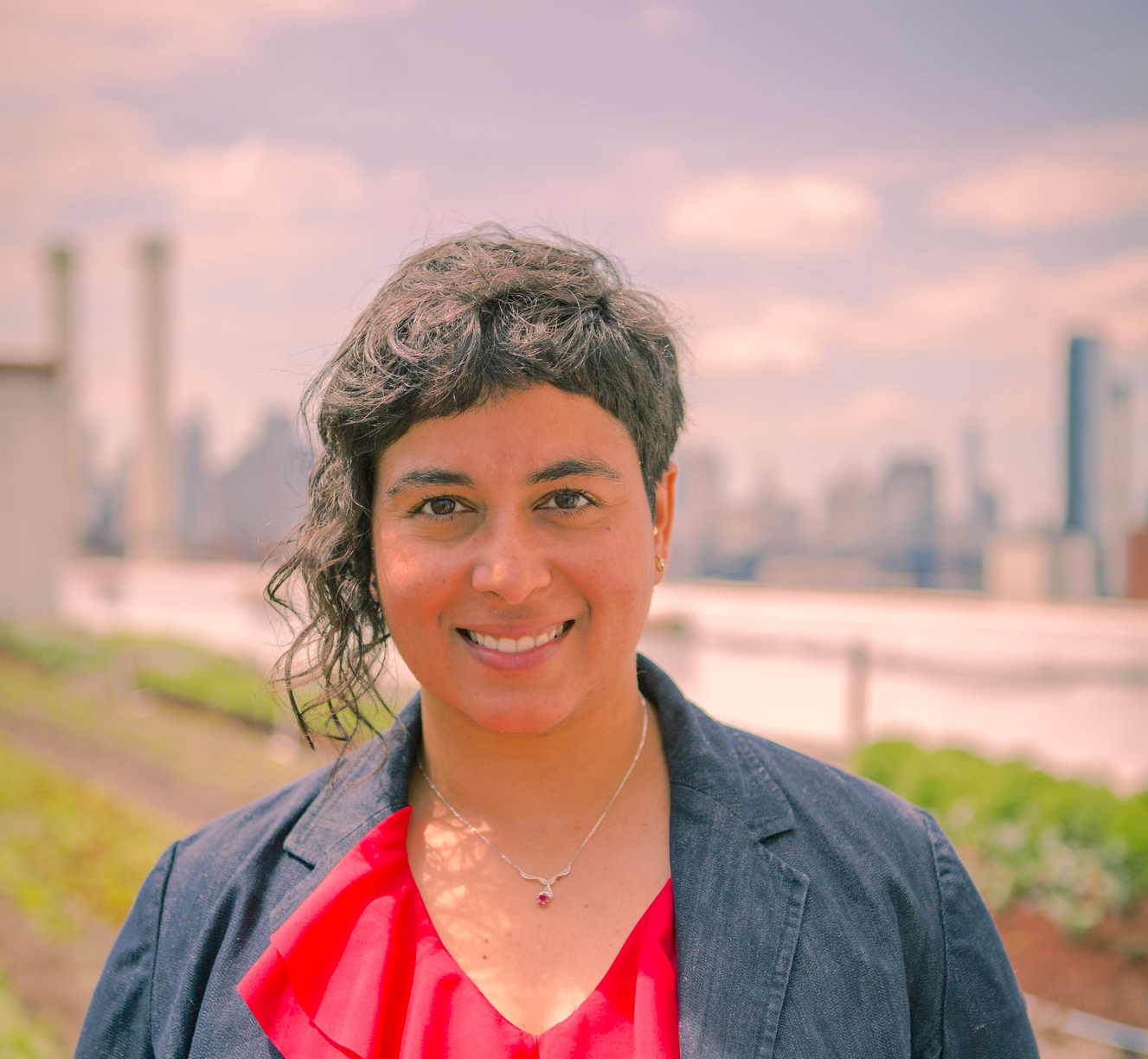
Brenda Brickhouse, Electric Power Research Institute (EPRI)
Brenda Brickhouse is with the Electric Power Research Institute (EPRI). She leads EPRI’s Equitable Decarbonization Initiative and is involved in many research efforts there including understanding the equity and environmental justice implications and opportunities associated with decarbonization and the clean energy transition. Prior to joining EPRI, Ms. Brickhouse served as Chief Sustainability Officer at the Tennessee Valley Authority and held a variety of environmental, operational and leadership roles in the utility industry.

Jeffrey Rissman, Senior Director of the Industry Program at Energy Innovation
Jeffrey Rissman is the senior director of the industry program at Energy Innovation, a nonpartisan energy and climate policy think tank. His work focuses on technologies and policies to achieve net zero industrial greenhouse gas emissions. He is the author of Zero-Carbon Industry: Transformative Technologies and Policies to Achieve Sustainable Prosperity (2024), coauthor of Designing Climate Solutions: A Policy Guide for Low-Carbon Energy (2018), and the creator of the open-source Energy Policy Simulator.

Luke Metzger, Executive Director of Environment Texas
Luke Metzger is Executive Director of Environment Texas. Luke is a leading voice in the state for clean air, clean water, clean energy and open space. He has led successful campaigns to win permanent protection for the Christmas Mountains of Big Bend; to compel Exxon, Shell and Chevron Phillips to cut air pollution at three Texas refineries and chemical plants; and to boost funding for water conservation, renewable energy and state parks. Luke is the author or co-author of numerous reports, including Illegal Air Pollution in Texas.

Pierre Conner, Executive Director of the Tulane Energy Institute
Pierre Conner is the Executive Director of the Tulane Energy Institute and Professor of Practice, Management Science. He teaches Energy Markets, Economics and Policy to Undergraduates and Energy Projects to Masters of Management in Energy students. He also guides the strategic direction and operations of the Tulane Energy Institute, which oversees energy-related academic programs for careers in the energy industry and related banking, consulting, financial, technology and trading firms. Photo credit Paula Burch-Celentano/Tulane University.

David Turcotte, University of Massachusetts Lowell
David Turcotte is research professor emeritus and director of the Lowell Healthy Homes program and New England Healthy Homes Training Center and a member of the Steering Committee of the Climate Change Initiative at the University of Massachusetts Lowell. He has served as Principal Investigator on U. S. Housing and Urban Development (HUD) funded environmental intervention research grants and also serves as Principal Investigator for the National Institute of Environmental Health Sciences (NIEHS) funded New England Consortium.

Maria Chavez, Energy Analyst for the Union of Concerned Scientists’ Climate and Energy program
Maria Chavez is an Energy Analyst for the Union of Concerned Scientists’ Climate and Energy program. She focuses on the capabilities of renewable energy technologies and the importance of equitable and justice-centered policies. Before joining UCS, Maria worked as a market research analyst, writing in-depth reports on clean energy technologies and forecasting market growth in this sector, and spent time conducting field work in places like the Peruvian Amazon, the Point Reyes National Seashore in California, and the White Mountains region of New Hampshire.

Emily Beagle, Research Associate in the Webber Energy Group at The University of Texas at Austin
Emily Beagle is a research associate in the Webber Energy Group at The University of Texas at Austin. She works on energy policy and pathways to decarbonization of the global energy system with a particular focus on the deployment and use of hydrogen to reduce emissions in the hardest to abate sectors. Prior to joining the Webber Energy Group, she was senior associate with the Climate Aligned Industries program at RMI and she also served as a Congressional Fellow in Energy in the office of Senator Tina Smith.

Rana Adib, Renewable Energy Policy Network for the 21st Century
Rana Adib is with the Renewable Energy Policy Network for the 21st Century. REN21 is a global public-private multi-stakeholder network on renewable energy headquartered at the United Nations Environment Programme in Paris/France. Previously, Rana was REN21’s Research Coordinator developing the international expert community and leading the REN21 Renewables Global Status Report series, Rana has over 20 years’ experience in the energy sector.

Jackie Nuñez, Advocacy Manager for Plastic Pollution Coalition
Jackie Nuñez is the Advocacy Manager for Plastic Pollution Coalition where she runs the the No Plastic Straws movement that she founded in 2011 as a volunteer project for Save Our Shores, and now a program of Plastic Pollution Coalition since 2016. Her goal is to help educate the public about the absurdity of single-use plastic, its effects on our health, environment and oceans. Eliminating single-use plastic pollution from the source. While using the plastic straw as a gateway issue towards eliminating our single-use plastic habit.

Dr. Win Cowger, Research Director at the Moore Institute for Plastic Pollution Research
Dr. Win Cowger (AKA Dr. Trash) is a Research Director at the Moore Institute for Plastic Pollution Research. He studies the sources, transport, and fate of plastic pollution in the environment. His science focuses on identifying solutions to plastic pollution and assessing their effectiveness. Win works with nonprofit groups like Let’s Do It World and Algalita, Government agencies like the Ocean Protection Council, and academics to implement science in practice.

Rob Koenen, Chief Revenue Officer for The Boxed Water™ Company
Rob Koenen is the Chief Revenue Officer for The Boxed Water™ Company, the first national company to offer a sustainable alternative to plastic water bottles. Rob is charged with expanding Boxed Water’s core message and empowering consumers to make a statement that “sustainability matters”, Rob leads the brand’s trial and awareness efforts, digital opportunities, and retail experiences. In prior leadership roles, Rob has worked with other lifestyle brands for companies in food, apparel and footwear.

Samantha Romanick, Molecular Biologist, at the University of Rochester
Samantha Romanick is a molecular biologist, at the University of Rochester studying innovative methods for the identification and characterization of environmental microplastics and its effects on human health. She develops tools to study the effects of microplastic exposure to human health. Samantha also leads the microplastics research focused Microplastic Workgroup of Western New York.

Anja Brandon, Associate Director of U.S. Plastics Policy at Ocean Conservancy
Anja Brandon is the Associate Director of U.S. Plastics Policy at Ocean Conservancy working to advance policy solutions to eliminate plastic pollution and support the transition to a circular economy. Anja was part of the team of environmental advocates that helped pass California’s SB 54 Plastics Pollution, law; one of the strongest in the country.

Mary Johnson, Principal Research Scientist in the Environmental Health Department at Harvard, TH Chan School of Public Health
Mary Johnson, Harvard, TH Chan School of Public Health, is a principal Research Scientist in the Environmental Health department. She leads studies which investigate the impact of climate factors, such as air pollution, wildfires, and other environmental exposures, such as toxic metals and microplastics on immune health. Her goal is to use the research findings to both educate and shape policy to improve health.

Nena Shaw, Director of the Resource Conservation and Sustainability Division at the United States Environmental Protection Agency
Nena Shaw, Director of the Resource Conservation and Sustainability Division at the United States Environmental Protection Agency where she works to advance a circular economy and implement the Bipartisan Infrastructure Law recycling efforts. Nena worked as a corporate environmental attorney at several law firms and has 30 years of environmental law and policy experience.

Jodi Sherman, MD, Associate Professor of Anesthesiology of the Yale School of Medicine
Jodi Sherman, MD, is Associate Professor of Anesthesiology of the Yale School of Medicine, Associate Professor of Epidemiology in Environmental Health Sciences, and founding director of the Yale Program on Healthcare Environmental Sustainability in the Yale Center on Climate Change and Health. Dr. Sherman also serves as the Medical Director for Yale New Haven Health Center for Sustainable Healthcare. Dr. Sherman is a member of the Lancet Countdown on Health and Climate Change and co-leads the Lancet Commission on Sustainable Healthcare.

Liz Willetts, Planetary Health Policy Director, Harvard T.H. Chan School of Public Health
Liz Willetts is Planetary Health Policy Director, Harvard T.H. Chan School of Public Health, with 20+ years’ experience mobilizing knowledge and engagement on biodiversity, climate change, pollution, food systems, and community health for marginalized populations. She has authored science-policy guides for the WHO, the UN Economic and Social Commission for Asia and the Pacific, and the International Institute for Sustainable Development.

David McGlinchey, Woodwell Climate Research Center
David McGlinchey is a journalist and lawyer and leads policy and government relations work at the Woodwell Climate Research Center, based in Woods Hole, Massachusetts. He engages with congressional climate leaders in Washington, DC, and has worked with Woodwell scientists in field operations, including from a permafrost monitoring station in interior Alaska to a tropical forest research station on the southern edge of the Amazon.

Ruth Abbe, President of Zero Waste USA
Ruth Abbe is president of Zero Waste USA and a Zero Waste practitioner with more than 25 years of experience in recycling and composting programs, facility development and outreach, and technical assistance. As president of Zero Waste USA, she is working with municipalities across the U.S. to develop the social and physical infrastructure to achieve Zero Waste. She has expertise in organics, waste audits, facility and collection procurement.

Gary Liss, National Recycling Coalition
Gary Liss has almost 50 years’ experience in recycling and waste management, is a leading advocate of Zero Waste, and is a founder, past President and Lifetime Honorary Board Member of the National Recycling Coalition. He is a principal of Zero Waste Associates, which specializes in developing Zero Waste Plans. He is Vice-President of Zero Waste USA, Chair of the Certifications Committee of the Zero Waste International Alliance, and Coordinator of the Recycling Is Infrastructure Too Campaign.

Dr. Callie Babbitt, Professor in the Golisano Institute for Sustainability at Rochester Institute of Technology
Dr. Callie Babbitt is a Professor in the Golisano Institute for Sustainability at Rochester Institute of Technology. She directs an interdisciplinary research team who studies sustainability challenges and solutions for emerging and rapidly evolving technologies, including consumer electronics, lithium-ion batteries, electric vehicles, nanomaterials, renewable energy, and food waste management systems.

Dr. Ruediger Kuehr, Head of the Bonn Office of the United Nations Institute for Training and Research
Dr. Ruediger Kuehr is Head of the Bonn office of the United Nations Institute for Training and Research (UNITAR) and is also Manager of the Sustainable Cycles Programme (SCYCLE). He was also Executive Secretary of the Solving the E-Waste Problem (StEP) Initiative, which aims to initiate and develop fair and environmentally safe solutions to the e-waste problem through analysis, planning, and pilot projects in joint cooperation with industries, governments, academia, and NGOs. Reudiger is also an Adjunct Professor at the University of Limerick in Ireland.

Dr. Elif Kongar, Professor of Economics and Business Analytics at the Pompea College of Business, University of New Haven
Dr. Elif Kongar is a Professor of Economics and Business Analytics at the Pompea College of Business, University of New Haven. Dr. Kongar's research areas encompass economically and environmentally sustainable waste recovery systems and operations, disassembly sequencing and planning, electronic waste, performance evaluation, big data and data analytics, quality improvement, engineering education programs and more.

Oladele Ogunseitan, Distinguished Professor and University of California Presidential Chair at UC Irvine
Oladele (Dele) Ogunseitan holds the titles of Distinguished Professor and University of California Presidential Chair at UC Irvine, where he led the establishment of the Program in Public Health and served as founding Chair of the Department of Population Health & Disease Prevention. He is co-director of the World Institute for Sustainable Development of Materials (WISDOM). Dele is Co-Chair of Apple Inc.’s Green Chemistry Advisory Board and served on the State of California’s Advisory Committee on Community Protection and Hazardous Waste Reduction Initiative. He also contributed to the successful achievement of U.S. goals at the third United Nations Environment Assembly.

Dr. Liz Goodwin, Senior Fellow with the World Resources Institute
Dr. Liz Goodwin is a Senior Fellow with the World Resources Institute and serves as Chair of the London Waste and Recycling Board. A chemist by background, she was with the Waste and Resources Action Programme (WRAP) as its first Director of Manufacturing. In 2015 Dr. Goodwin was awarded an OBE in the Queen’s Birthday Honours List for services to the Business Resource Efficiency and the Environment.

Claudia Fabiano, Sustainable Management of Food Team Analyst for the Environmental Protection Agency
Claudia Fabiano is the Sustainable Management of Food Team analyst for the Environmental Protection Agency (EPA), where she works to help communities prevent wasted food and manages national wasted food data and technical tools. She is also on the board of Washington, D.C.'s Food Recovery Working Group.

Deepti Singh, School of the Environment at Washington State University Vancouver
Deepti Singh is an Assistant Professor and leads the Climate Extremes Lab in the School of the Environment at Washington State University Vancouver (WSU). Her research studies how natural climate variability and human-caused climate change affects extreme weather events like heatwaves, droughts, and intense rain events, and how these changing climate conditions affect our health and the resources we rely on. She is also an author on the Fifth US National Climate Assessment, scheduled to be release in Fall 2023.

Jennifer Marlon, Ph.D., School of the Environment and the Yale Program on Climate Change Communication
Jennifer Marlon, Ph.D. is a Senior Research Scientist and Lecturer in the School of the Environment and the Yale Program on Climate Change Communication (YPCCC), with a secondary appointment as Lecturer in the Department of Molecular, Cellular and Developmental Biology at Yale. She studies climate change, extreme weather (particularly wildfires), and science communication and the Yale Climate Opinion Maps.

Catharina Giudice, Emergency Physician in Los Angeles
Catharina Giudice is an Emergency Physician in Los Angeles. Her efforts have been aimed at raising awareness of climate change as a health emergency. She has developed a climate change elective curriculum for EM residents worldwide, has and spearheaded multiple publications on managing pathologies affected by climate change. She is a member of the Medical Society Consortium on Climate and Health and serves as vice chair of the Emergency Medicine Residents' Association.

Kristina Dahl, Climate & Energy program at the Union of Concerned Scientists
Kristina Dahl is principal climate scientist for the Climate & Energy program at the Union of Concerned Scientists. She provides scientific direction for the climate team as well as across UCS campaigns and programs. Dr. Dahl is also responsible for designing, executing, and communicating scientific analyses to make climate change more tangible to the general public, and to policymakers. Her research focuses on the impact of climate change, particularly sea level rise and extreme heat, on people and places.
